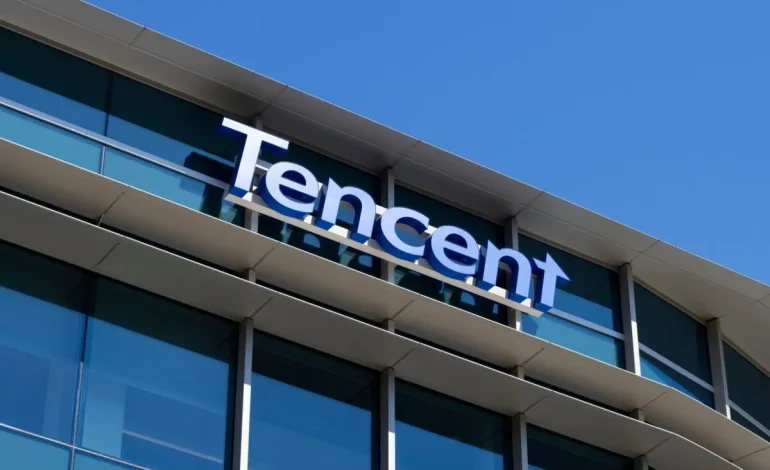Tencent Issues Bonds to Fund AI and Cloud Expansion

Introduction
Tencent has launched a multi billion dollar bond sale aimed at financing its investments in artificial intelligence and cloud computing. The move highlights how China’s largest internet companies are turning to capital markets to secure funding for the next stage of technological growth. Investors see the offering as both a test of market confidence in China’s technology sector and a signal that Tencent intends to compete aggressively with domestic and global rivals in AI infrastructure.
Details of the bond sale
Reports indicate that Tencent is issuing several tranches of US dollar denominated bonds with maturities ranging from short term to more than a decade. The total value is expected to exceed 4 billion dollars, making it one of the company’s largest international debt offerings in recent years. Proceeds will be earmarked for cloud infrastructure buildouts, AI research, and refinancing of existing debt.
The decision to issue bonds abroad reflects Tencent’s ability to tap global capital markets even as geopolitical tensions and regulatory pressures create uncertainty for Chinese technology firms. Strong demand from institutional investors in Asia, Europe, and the US suggests that Tencent retains credibility as a borrower despite broader concerns about China’s economy.
Why Tencent needs capital now
Tencent’s traditional revenue engines, such as gaming and advertising, are facing slowing growth. While titles like Honor of Kings remain profitable, tighter regulation of gaming hours and content has reduced upside potential. Advertising revenues are under pressure from increased competition with ByteDance and the overall softness of China’s consumer economy.
To maintain growth, Tencent is betting heavily on AI and cloud computing. Its cloud division already provides services to government agencies, financial firms, and manufacturers. However, competition is intensifying as Alibaba Cloud, Huawei Cloud, and Baidu expand their own AI driven offerings. The bond sale provides Tencent with fresh capital to expand data centers, acquire hardware, and accelerate deployment of its proprietary AI models.
Focus on AI integration
Tencent has developed its own large language models and multi modal AI systems under the Hunyuan brand. These models are being integrated into WeChat, Tencent Meeting, and other core services. The company aims to use AI to enhance user engagement, improve advertising targeting, and provide enterprise customers with advanced data analytics.
With AI adoption growing across sectors from finance to healthcare, Tencent wants to position itself as a trusted provider of secure, enterprise grade AI tools. Bond funding will allow it to scale infrastructure and recruit top talent to sustain innovation.
Investor appetite and risks
Investor demand for the bonds has been strong, with order books reportedly oversubscribed. This reflects confidence in Tencent’s balance sheet and its track record of generating steady cash flow. Analysts note that global investors are eager for exposure to Chinese technology companies with strong fundamentals, even amid a weaker macroeconomic backdrop.
Risks remain. Rising US interest rates increase the cost of issuing dollar denominated debt. Geopolitical frictions could also limit Tencent’s access to critical semiconductor technologies, undermining its AI ambitions. Finally, regulatory oversight inside China remains tight, with rules governing content, data security, and competition shaping the way technology companies can expand.
Comparison with peers
Tencent’s decision mirrors broader financing trends among Chinese tech giants. Alibaba has committed more than 53 billion dollars to AI and cloud spending, while Baidu continues to invest heavily in its Ernie Bot platform. Each company is trying to secure enough computing power and model development capacity to dominate China’s AI landscape.
Unlike Alibaba, Tencent is more focused on consumer platforms such as WeChat, QQ, and its vast gaming empire. This gives it a unique advantage in data collection and real world application of AI models. At the same time, Tencent faces greater scrutiny because of its social impact, making compliance a constant balancing act.
Impact on global AI race
The bond issuance underscores how Chinese technology firms are determined to stay competitive with American counterparts such as Microsoft, Google, and Amazon, all of which have made multibillion dollar investments in AI infrastructure. By raising capital on international markets, Tencent is showing that Chinese firms can still attract global investors despite political headwinds.
The funds will likely go into building data centers, expanding cloud computing availability in overseas markets, and refining AI applications that can scale internationally. This raises the stakes in the global AI race, where infrastructure spending is becoming as important as algorithmic innovation.
Regulatory and political environment
Tencent’s expansion plans will unfold under strict regulatory oversight. China requires companies to register generative AI products, ensure compliance with content rules, and align with national data security standards. Tencent has been careful to signal compliance, embedding filters and restrictions into its AI systems.
At the same time, Beijing sees AI as a strategic sector. The government has encouraged companies like Tencent to invest in computing infrastructure and talent development. As a result, Tencent’s bond financed expansion aligns with national policy priorities, even as it operates under close supervision.
Conclusion
Tencent’s decision to issue bonds for AI and cloud expansion is both a financial and strategic statement. It shows that the company is willing to leverage global capital markets to fund its long term vision and that investors continue to see value in Chinese technology leaders. The money raised will strengthen Tencent’s competitive position, but it will also test its ability to navigate regulatory pressure, geopolitical risk, and intensifying competition. For China’s AI ecosystem, the move represents another step toward building the scale and resources needed to rival the world’s biggest technology firms.






